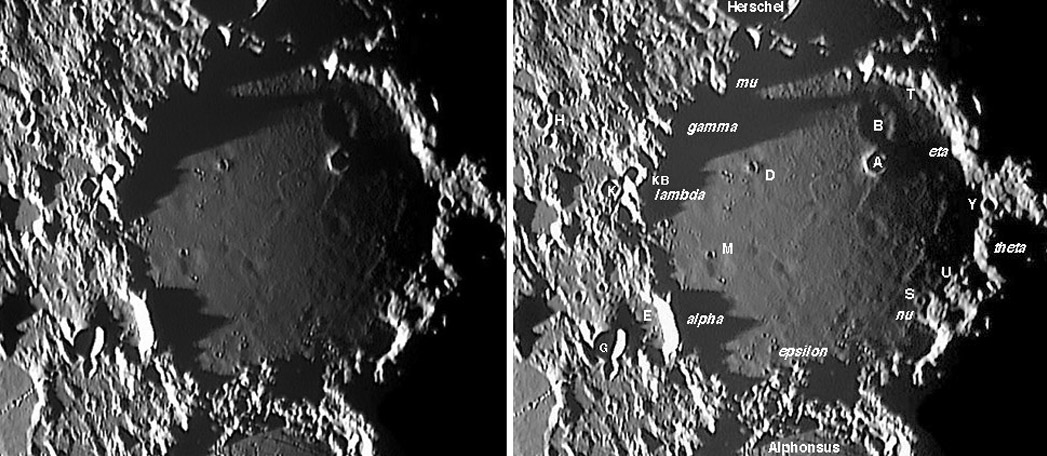October 7, 2011
Ptolemaic Sunset

image by Craig Zerbe
Ptolemy, the Greek astronomer, dominated medieval science, and his crater dominates the central region of the Earth-facing hemisphere of the Moon. Ptolemaeus, the Latinized version of the Greek name, is 153 km wide and 2.6 km deep. The rim is battered and a piece is missing on the west side. To the south, Alphonsus slightly overlaps Ptolemaeus, showing that Alphonsus is younger. To the north, the fresh crater Herschel does not overlap Ptolemaeus, but its secondary craters gouge the older crater's floor. Ptolemaeus is famous for the shallow saucers that dimple its floor. These features have such shallow slopes that they are only detected for a short time near sunrise and sunset. The easiest to spot is Ptolemaeus B, which is 14.5 km wide. The second easiest saucer is just south of Ptolemaeus M. I spent a pleasant 2+ hours trying to identify each peak. Peak designations are no longer official and the most recent map showing them is the rather schematic Blagg & Muller IAU map of 1935. I also checked the maps of the sources of the designations: Beer & Madler, Neison and Schmidt - what fun! And what confusion! Someday designations will be needed for many peaks and mountains on the Moon that already have them, but since such names are no longer tracked there will be much uncertainty. A good project would be to make a new photographic nomenclature map that includes peaks. The annotated image here is an example.
Chuck Wood
Still travelling; a classic LPOD from March 3, 2004. Make sure you check the March 4, 2004 LPOD also.
Technical Details
Celestron 11 inch SCT mounted on a Losamady G11, using an Astrovid 2000 camera on Oct 20, 2000. More than 250 stacked images.
Related Links
Rükl plate 44
Yesterday's LPOD: The Two Fundamental Processes
Tomorrow's LPOD: Homework
COMMENTS?
Register, Log in, and join in the comments.



